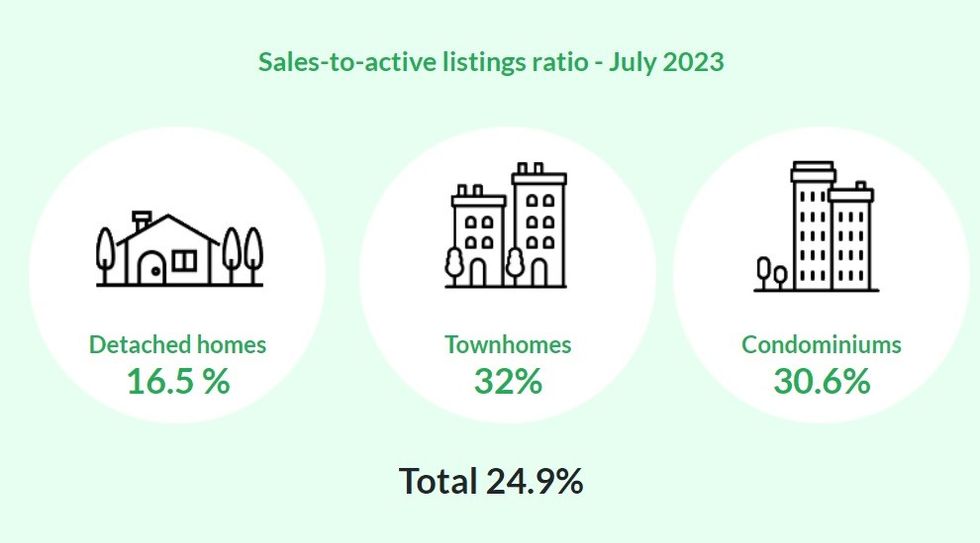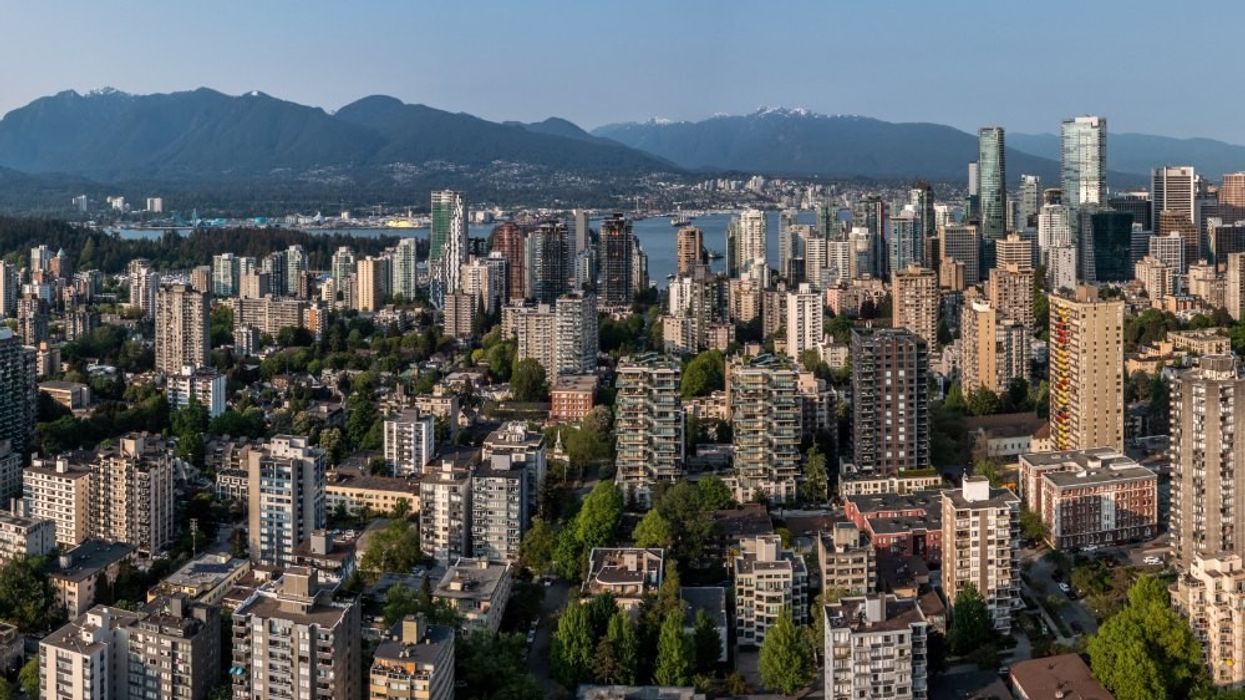How well you think the Greater Vancouver real estate market is doing will depend on your perspective.
According to new statistics published by the Real Estate Board of Greater Vancouver (REBGV) on Wednesday, July saw a total of 2,428 home sales — an 18.2% decrease from the 2,968 in May, but a 27.5% improvement compared to July 2022.
July also saw 4,649 new listings come on the market. Again, that's a 13.1% decrease from the 5,348 added in May, but a 16.9% improvement compared to the 3,975 in July 2022.
The number of total active residential listings is now up to 9,764, which is up from 9,466 in June, but again below July 2022.
In other words: market activity month-to-month is not great, but better year-over-year. However, comparisons to last July may also have to be taken with a grain of salt, as that was when the Bank of Canada announced a 1% increase — the largest in the past two years.
"While sales remain about 15% below the 10-year average, they are also up about 30% year-over-year, which is not insignificant," says REBGV Director of Economics and Data Analytics Andrew Lis. "Looking under the hood of these figures, it's easy to see why sales are posting such a large year-over-year percentage increase. Last July marked the point when the Bank of Canada announced their 'super-sized' increase to the policy rate of 1.00%, catching buyers and sellers off guard, and putting a chill on market activity at that time."
The Market Lean
What do these statistics do for those who are still interested in entering the market?
With the above numbers, we can calculate the sales-to-new-listings ratio and the sales-to-active-listings ratio, which are two quantitative indicators that can help us identify if the market is currently leaning in any particular direction and whether there is a potential advantage for sellers or buyers.
For the sales-to-new-listings ratio, a ratio of 40% or lower is considered to be favouring buyers, a ratio of 55% or higher is considered to be favouring sellers, and anything in between is considered a balanced market.
With 2,428 home sales and 4,649 new listings recorded in July, the sales-to-new-listings ratio is now 52.2%, a decrease from the 55.5% in June and the 59.7% in May, suggesting that the market may currently be quite balanced.
For the sales-to-active-listings-ratio, a ratio of 12% or lower is viewed as favouring buyers, a ratio of 20% or higher is viewed as favouring sellers, and anything in between is viewed as a balanced market.
With 2,428 home sales and 9,764 total active listings in July, the sales-to-active-listings ratio is now 24.9%, which is a decrease from the 31.4% in June and the 38.4% in May, again indicating the same shift towards market balance.
By property type, the sales-to-active-listings ratio is now 16.5% for single-detached homes, 32% for townhouses, and 30.6% for condominiums, indicating a fairly significant divergence between single-detached homes and other residential property types.

Home Prices Remain Firm
By property type, the benchmark price hit $2,012,900 for single-detached homes, $1,104,600 for townhouses, and $771,600 for condominiums, all three of which represent increases of between 0.5% and 1.1% compared to June, as well as an increase between 0.6% and 2.6% compared to this time last year.
"The interesting thing about [Greater] Vancouver is it's a high-equity market," says Elton Ash, Executive Vice President of RE/MAX Canada. "So when you look at single-detached homes especially and people who are in the market, because of equity, if they don't get what they want, they don't sell, and there's a little concern about what they'll buy, so that adds pressure to inventory."
"The other factor with this is that there is pent-up buyer demand," he adds. "We see that in condominiums and townhomes especially, so prices will just continue to edge up in the Lower Mainland."
Ash also says he believes there will be more inventory come October and November, which will likely bring more sales volume, but activity may still be tempered until then, and the Bank of Canada will continue to be the thermometre.
The Bank of Canada's next policy interest rate announcement is scheduled for September 6.
- Vancouver Luxury Real Estate Market Showing No Immunity To Rate Hikes ›
- Metro Vancouver Housing Market Flourished During Q1 2023: Report ›
- Homebuyer Confidence Returning in Greater Vancouver: REBGV ›
- Greater Vancouver Sees Home Prices Cool Off In August ›





















